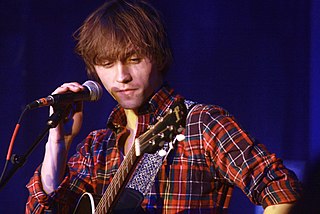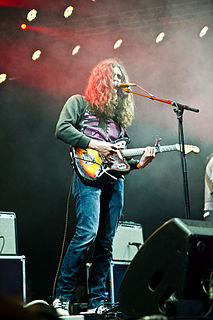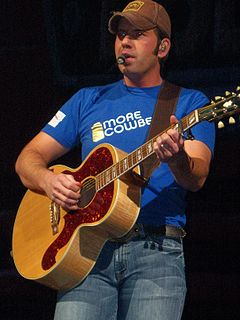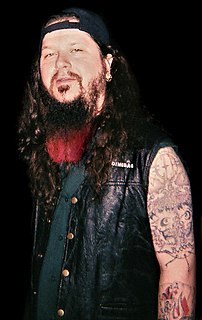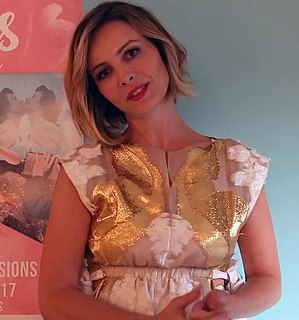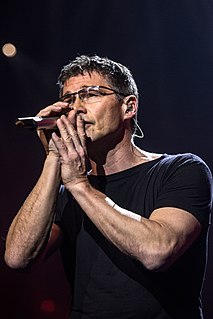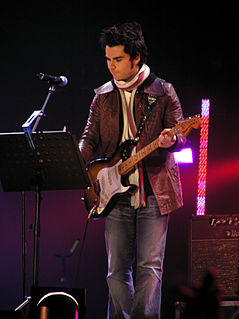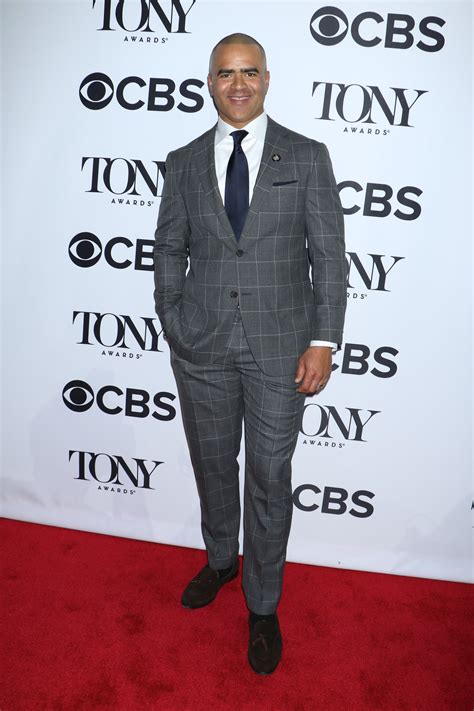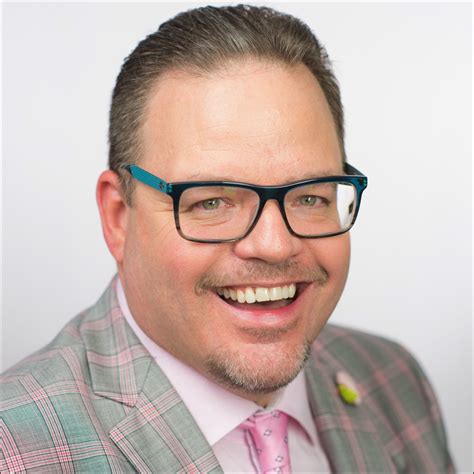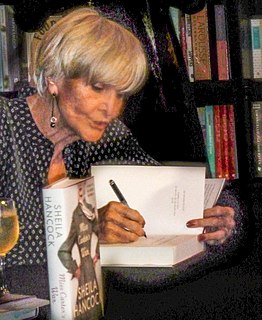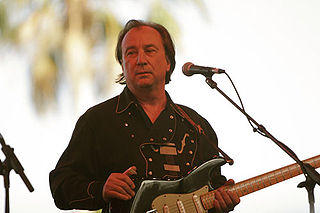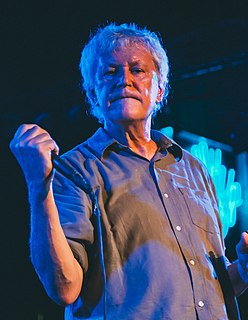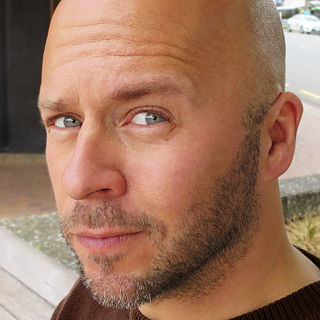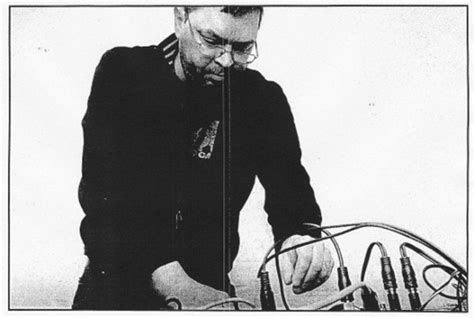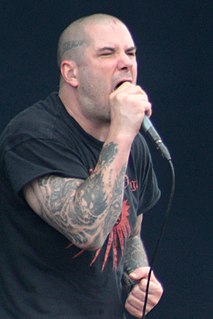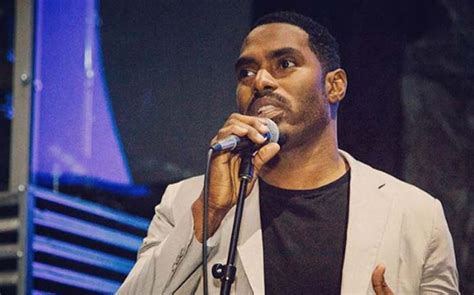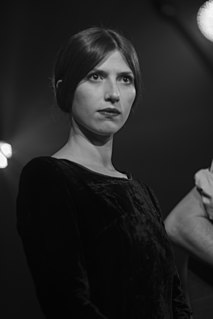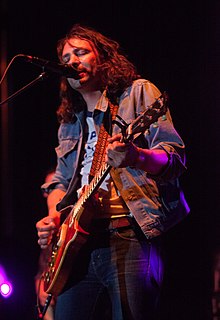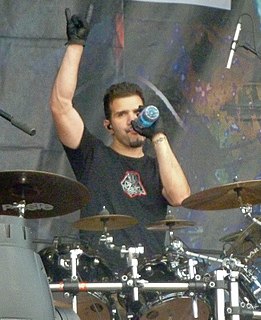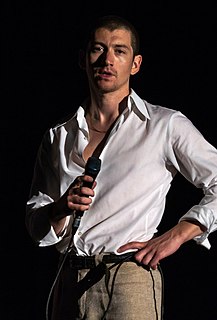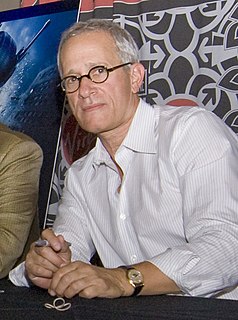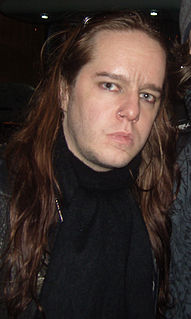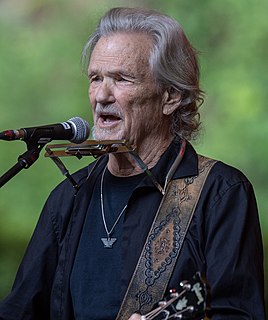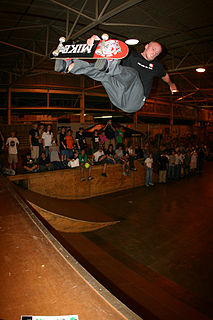Top 110 Demos Quotes & Sayings - Page 2
Explore popular Demos quotes.
Last updated on April 21, 2025.
Just about the entirety of the first album, 'Brown Sugar,' I wrote it, the majority of that record in my bedroom in Richmond. And all of the demos for it were done on a four-track in my bedroom. I think EMI was a little leery of me being in the studio producing it on my own, which is what I was fighting for.
I started doing some demos and got online and bought a refurbished laptop, bought a microphone off of eBay. A lot of folks said you can't really do it that way at a pro level, but I did some vocals that way, turned it into the label and they said, 'Wow, where did you record this? The vocals sound great!'
I didn't really feel any pressure when I've made records, I haven't as yet anyway. I feel when I'm making a record that I'm so excited about making new songs that when I'm doing demos of new songs, as soon as I make one that's really different I get really excited about the record, I don't care about the last record anymore.
My own efforts at peacemaking have been easy - in fact, rather enjoyable: CND marches, demos, protest meetings in Trafalgar and Grosvenor Squares, and visits to the women at Greenham, especially the glorious day in 1983 when thousands of us embraced the base and pinned beautiful pictures and objects to the ugly wire.
In our time, the great task for libertarians is to find an escape from politics in all its forms—from the totalitarian and fundamentalist catastrophes to the unthinking demos that guides so-called ‘social democracy.’ . . . We are in a deadly race between politics and technology. . . . The fate of our world may depend on the effort of a single person who builds or propagates the machinery of freedom that makes the world safe for capitalism.
I brought the music out to L.A., and the producer Tommy LaPuma heard it and he said - "Man, I love it. Let's do it. Let's record it." I said, "Okay, where's the band?" He said, "We don't have a band. We want it to sound exactly like your demo." I said, "Well, I played all the instruments on the demo." You do that when you're making demos. You got your guitar, you got your sax. He said, "Well, I want it to sound just like that, so get all your instruments out here." So I ended up playing all the instruments.
Sharing the code just seems like The Right Thing to Do. It costs us rather little, but it benefits a lot of people in sometimes very significant ways. There are many university research projects, proof of concept publisher demos, and new platform test beds that have leveraged the code. Free software that people value adds wealth to the world.
The process always starts with detailed conversations with the director, followed by a spotting session (deciding where the music goes and doesn't go in the film, and what the music should be saying or not saying) in each scene. This is followed by sending the director demos of each cue for feedback.
In the 80s, if you wanted to make electronic music, it was a much tougher and more expensive process. For many people it would involve either spending loads of money on gear or else cutting demos in a proper studio. But I had this Casio keyboard and tape recorder and used to do stuff in my bedroom - I'd listen to Mantronix and all that. That was what I had so that's what I used.
When you're in the moment and not over thinking the song is when things tend to really work. You're not so focused on the minutiae. You're focused on the overall feel, and that's the stuff that I get from the demos. First impressions are always the most important. When you start getting into a full-band, democratic context the little things almost immediately get thrown out the window because you don't think they're important.
The music kind of takes care of itself because we've done all that as preproduction in the practice room. So by the time it gets onstage, each song has about one hundred hours of way too much mothering gone into it. So when you see us play live, that is the product of ninety days of practice, over a year of writing, listening to demos on the weekends after practice.
I had demos that I'd send out of the songs and I'd get, "Great, can't wait to get in a room and actually play this and work on the album." So, it was good all-around because they knew even though I wasn't with them for some of the shows, I was being productive, which was really important because I didn't want to just sit on my ass. Once I was able to use my hand again, I would go right into it.
I've always been shy, but I see that as a good thing because it kept me focused on music. When I was in seventh grade, I asked my parents for a mobile recording system for Christmas, and I got it. I didn't come out of my room for years after that. I'd get invited to the movies and I'd say, 'I'm gonna finish a couple of demos.'
It was 2002, we all got guitars for Christmas and started playing in my garage that summer, rehearsed there and in a warehouse for a bit for about a year. We did our first gig in June 2003 and we played a few gigs in and around Sheffield for a bit then started doing gigs outside of Sheffield about this time last year, recording demos while all this was going on.
I was sixteen, I became a working guitar player gigging in LA, mostly in top 40 bands, then touring. I learned to take songs apart, down to their bones. Songwriters would hire me to produce their demos, which lead me to become a songwriter. The relationship and power music has to TV and film attracted me to composing [and] I learned to write for instruments other than guitar.
I try and write a fair amount in the beginning without the movie. And then when I do get the movie I create these demos, just mock-ups, and I throw them up against the picture and some of it sticks and some of it doesn't. But I'm very careful before I play anything to picture, because that's such a profoundly important moment.
Through skateboarding, I have an open line of communication, some common ground and common ground is big man. That enables me to travel around the world and no matter where I am, or who I'm with, connect with other young people, and I can have an instant dialogue and an instant relationship based on the fact that we skateboard, and when I'm doing appearances and demos, that's not lost on me.

